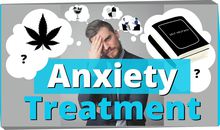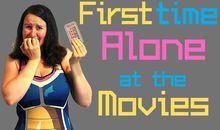Coronavirus: how to get out of health anxiety by challenging fears
It’s one big trap for our brains!
You probably already know this, but the media words events in particular ways in order to get more attention... more eyeballs.
They’ll aim for either, anxiety, anger or awe in order to gain that attention.
Most commonly, they'll use anxiety, as threats or dangers grab and hold our attention like nothing else.
Case in point, the COVID-19 Coronavirus.
There's now been a few cases in New Zealand and the media is all over it.
It is so hard not to get swept-up in the contagious panic about this virus.
As an Anxiety Specialist, I feel it’s my duty to point out that anxiety is not a helpful approach for dealing with this virus.
And I'll tell you why.
But first, let's cover a few facts as groundwork for what we'll do later.
Coronaviruses or named thus because of a distinctive corona or "crown" of sugary proteins surrounding the virus when seen under a powerful microscope.
This virus family are a pretty common form of cold, causing a runny nose, sore throat, headache, fever, cough, and a general unwell feeling.
COVID-19 is a new coronavirus (which crossed over from bats), and in 80% of cases causes typical cold symptoms: fever, coughing and shortness of breath for up to 2 weeks.
Only a small portion of the population experience more severe symptoms.
These are the 'at risk' portion of the population, who are older or have an underlying health condition like heart disease, lung disease, diabetes, or are on immunosuppressant drugs.
In these cases, pneumonia can set in, or other acute breathing difficulties and it can last for 3-6 weeks.
Someone's risk of dying from this has been noted to be affected by the country they're in and the care they receive for it.
For most of us that are worrying about getting it and dying from it, we're in the highly likely to experience it as a cold segment of the population.
For those of us who have feared for our children: no children so far have died from this coronavirus and in fact seem to show increased resistance to the virus compared to the rest of the population.
The few children that have had this Coronavirus, present with a cough, congestion, runny nose, diarrhoea and a headache. Less than half of children have a fever. Many have no symptoms whatsoever.
Even infants, who are traditionally more susceptible to respiratory infections, have had relatively mild symptoms.
Frighteningly, The World Health Organisation recently escalated the global death rate from coronavirus to 3.4%, however some experts believe even the previous estimate of 2% was an overestimate, as it's a virus that has been shown to have many mild or asymptomatic cases and a lot of these are going unnoticed or undiagnosed, as it's hard to distinguish from a regular cold.
In fact, it seems to be spreading so well because of it's low death rate.
But Michael, isn’t it my duty to try to prevent bad things happening to me and my family??
I think getting caught in quarantine for coronavirus sounds like a real pain and could be hard on a lot of people, using up their sick leave.
It's probably a good idea to have some supplies at home as a contingency plan.
A lot of us here in New Zealand already do that in case of earthquakes.
But this is different from worrying.
Worrying is when we catastrophise an issue beyond reasonable likelihoods and then continue to focus on how bad it will be, rather than proceeding onto creating a reasonable and actionable plan and then carrying it out.
If you’re going to restrict your life for Coronavirus and spend a great deal of thought and time on it, then you logically need to for other colds and flu, the risk of a car crash, a sporting, leisure or household DIY injury and so on.
Where does it end?!
Wouldn't it be healthier to focus on keeping your immune system functioning in optimal condition?
Making it extremely likely that you are only mildly affected by this virus, or don't even notice you had it?
Proper nutrition, exercise, adequate sunlight and social connection have been shown to be really helpful for this.
And one of the most helpful things is managing your stress and anxiety!
This is because your fight and flight response is for acute emergencies...
It's for running away from something that might kill you right now.
And to give you the best chance of survival, your body puts everything into running.
It shuts down digestion AND... suppresses your immune system!
So, the best thing we can do to protect ourselves from a virus like coronavirus is to reduce our anxiety about it, not amp it up!
Ok Michael, but how do I stop this worry track from going round and round in my head?
One thing we can do is challenge the catastrophic thought that kicked off the worry.
A Cognitive technique called Cognitive Challenging.
I'm going to get Becky to help me demonstrate this technique in action in the video below.










